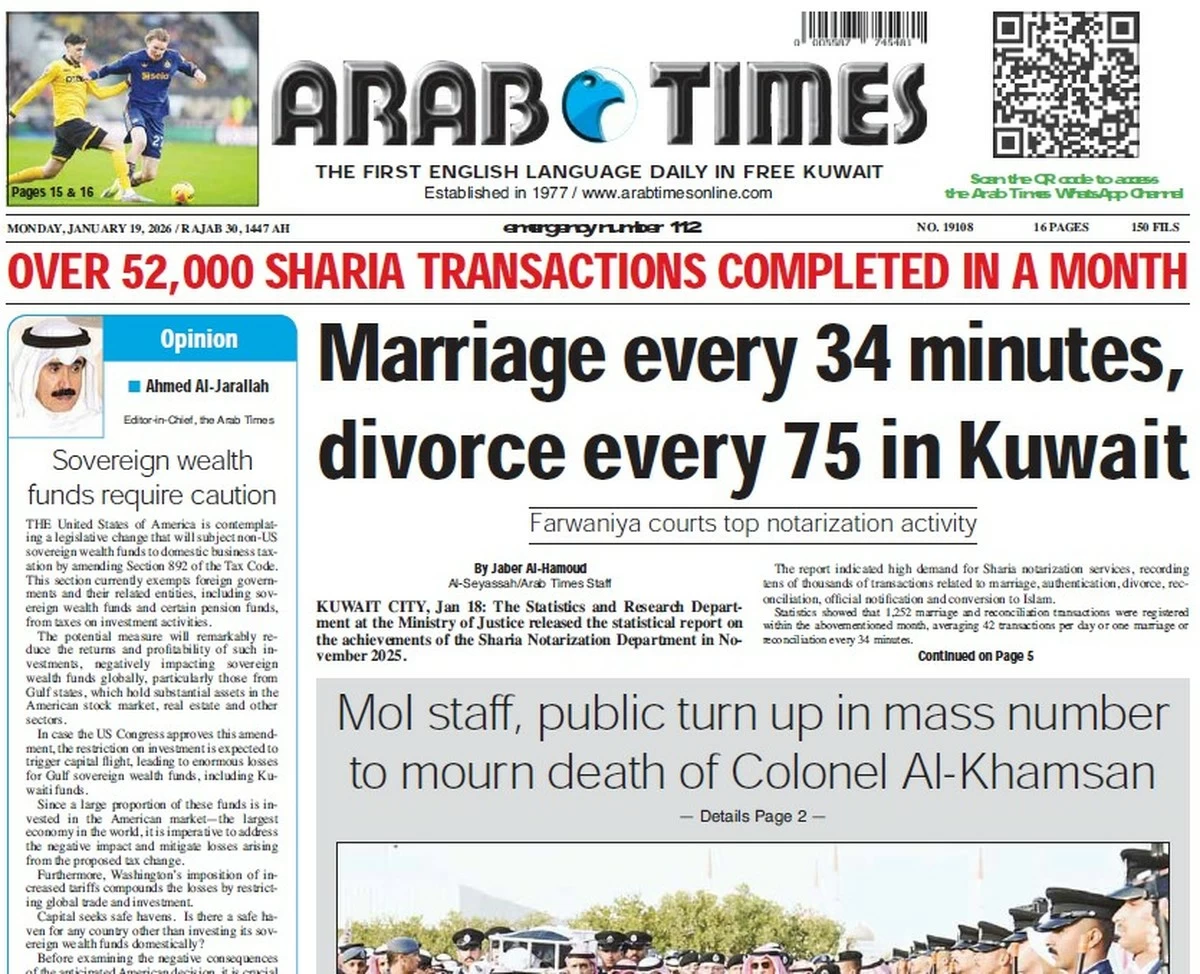02/03/2024
02/03/2024

LET us be frank … There is no doubt that Your Highness is aware of all the challenges that the majority of the people are facing. Nevertheless, there is no harm in mentioning some of them, as it may enable the correct economic path that the Kuwaitis aspire for, especially in terms of the closure of the country and its impact on the commercial, urban, and even social movement.
This is because Kuwait went against the trend of the rest of the Gulf countries, which opened their doors to everyone in order to benefit from diversifying their income, and they weaned themselves off of oil.
In recent years, laws have been enacted and ministerial decisions were taken, which, to say the least, have increased the stagnation of the economy and led to the expulsion of investments, both national and foreign.
Furthermore, it led to the alienation of Kuwaiti youth, who sought opportunities in other countries, contrary to the aim of reorganizing the demographic structure. Even more concerning is the loss of valuable experience as some of them opted to leave, depriving the country of their skills and knowledge.
This came as a result of the decision to deny a resident over 60 years of age the opportunity to renew his residency unless he pays fees that he cannot afford, despite living in the country for forty years or more.
Your Highness the Prime Minister, these foolish laws and decisions have cost Kuwait a lot. Those who were forced to leave Kuwait went on to find in other Gulf countries safe havens for work and investment, especially since their experiences are regional and familiar, and they have their life earnings which they take with them to benefit the countries they moved to.
The fees collected from this category do not exceed a few million, but they have an impact on the citizen because he is the one who will pay them indirectly.
This same happened when the recruitment of expatriate workers from abroad was suspended, as it had led to an increase in the daily wages of workers and craftsmen. We had referred to this matter on a previous occasion.
They are contractors, professionals, and merchants who spent most of their lives in Kuwait, including the barbers who improved their skills on our heads, and whose income was shared with citizens who were their partners or beneficiaries. Kuwait lost all of that, and it also increased the costs for the citizens.
Your Highness the Prime Minister, the negative decisions also included the one to open the door for visitors but only under ridiculous conditions, which meant that we did not want anyone to come to us.
We therefore beg to ask - What is the harm if the resident wants to bring his family to visit, and has the ability to pay the costs? Why stipulate a large salary, or limit the visitor to come on our local airline carrier?
Let us assume that he comes by land via car or on the back of a camel. Is the car or the camel required to be Kuwaiti? Will Kuwaiti accept being treated the same, or is it that “we are different, and what we permit for ourselves we prohibit for others”?
All these unrealistic arguments do not exist in other countries. Openness did not harm the UAE whose citizens constitute about 12 percent of the population.
The Kingdom of Saudi Arabia, which today grants visas to visitors in less than half an hour, is not disturbed by about 30 million visitors daily. The same with Qatar, which today has become a tourist destination for about 40 million visitors annually.
What is the reason behind this fear in Kuwait about opening the country? What is the benefit to the demographic composition if our economy is stagnant and closed?
Dubai Airport has become the busiest airport in the world, and tourism generates about USD 40 billion annually to the Emirates. Saudi industrial cities have become more productive and are exporting, thus not requiring the investors to have a Saudi partner. All of this means added value to the economy, whether in workers or investors, and no one is narrow-minded about these.
Your Highness the Prime Minister, just decide and open up the country like the other Gulf states, so that we do not one day say, “We wish we had done things differently.”
By Ahmed Al-Jarallah
Editor-in-Chief, the Arab Times


